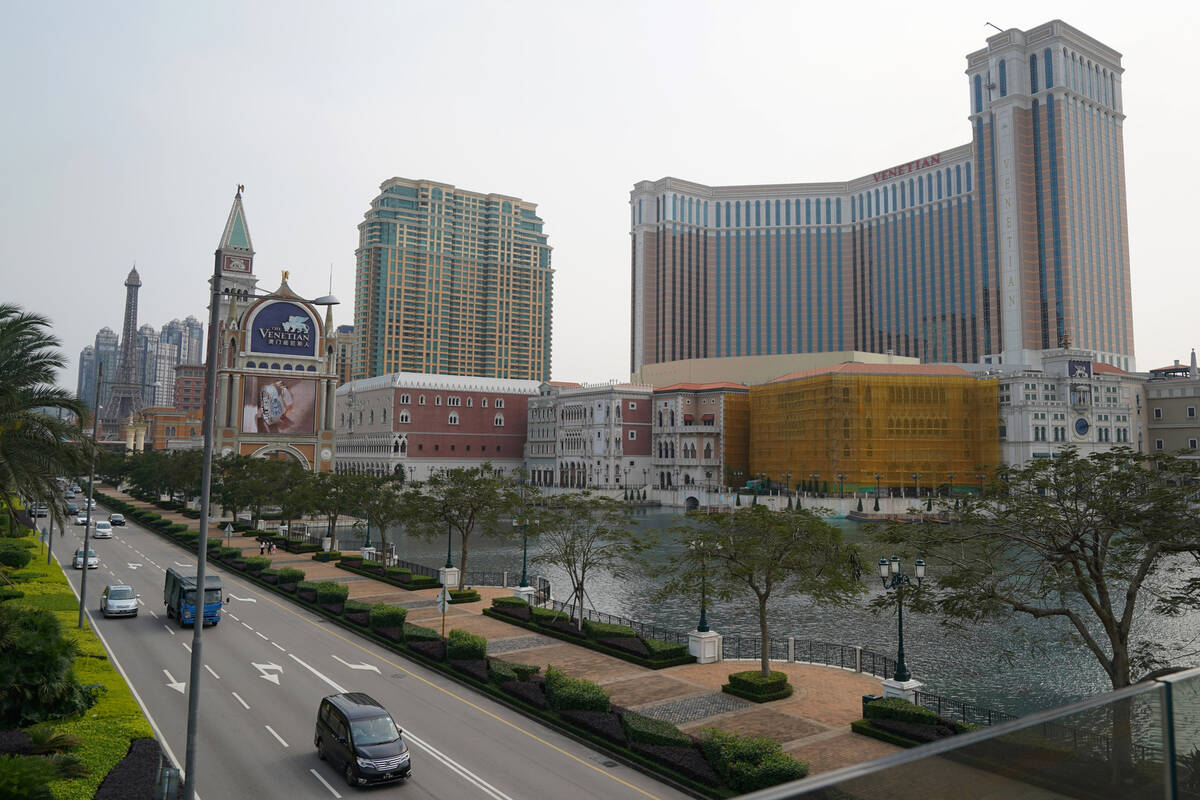Macao hits new monthly gaming revenue low for pandemic in July
Gaming revenue for Macao’s 41 casinos in July plunged to its lowest level during the pandemic because of COVID-19-related restrictions, the Gaming Inspection and Coordination Bureau reported Monday.
The bureau that tracks casino win for the Chinese gambling enclave reported revenue of $49.2 million (U.S.) for the month, a 95.3 percent decline from the $1.044 billion collected in July 2021. That low total beat the previous low of $88.5 million reported in June 2020.
For all of 2022, gaming revenue in Macao is down 53.6 percent from the first seven months of last year to nearly $3.3 billion.
Industry analysts expected July numbers to be down because casinos were ordered closed by the government for 12 days to reduce the spread of COVID-19. In addition, other restrictions, including border closures, have kept tourists away and local residents were told to stay in their homes except for emergencies for much of the month. When casinos were allowed to reopen July 23, they were only allowed to have half their staff in place.
Some restrictions are being lifted by the government Tuesday, but analysts still expect August revenue to be low.
Macao is important to three Las Vegas companies, Las Vegas Sands Corp., Wynn Resorts Ltd. and MGM Resorts International, because usually between half to two-thirds of their company revenue comes from Macao. In the second quarter of 2022, Sands reported that $374 million of the company’s $1.045 billion in revenue came from its Macao operations with the rest coming from better results from its Singapore property.
MGM is scheduled to report its second-quarter results Wednesday with Wynn following next week.
Representatives of the three companies on Monday had no comment on the numbers. A Wynn spokesman indicated more details could come in the company’s Aug. 9 earnings call with investors.
‘Opportunity for recovery catalyst’
Gaming analyst John DeCree of Las Vegas-based CBRE Equity Research said that while Macau is scheduled to return to more normal activities in the next week or so, there is still no timeline for returning to quarantine-free travel with mainland China.
“Currently, travelers are required to have a valid negative COVID test 48 hours prior to departing the mainland, and on the return home, a 24-hour negative test, plus a mandatory seven-day quarantine period,” DeCree said in a report to investors. “We do not expect any meaningful revenue recovery in August, and possibly very little in September as well. We look forward to the October holiday period as a potential opportunity for a recovery catalyst.”
Gaming analyst Carlo Santarelli of the New York office of Deutsche Bank lowered his full-year revenue forecasts for Macao after Monday’s results were announced by the bureau in a report to investors.
In his report, Santarelli estimated third-quarter gaming revenue would fall 31 percent from last year and 82 percent from the third quarter of 2019 to $1.62 billion. Previously, he had projected revenue of $2.34 billion for the quarter.
Stocks still close higher
Despite the gloomy revenue news, Sands, Wynn and MGM closed slightly higher Monday on their respective stock market exchanges.
Sands, traded on the New York Stock Exchange, closed up 8 cents, 0.2 percent, to $37.77 a share.
MGM, also on the New York Stock Exchange, closed up 11 cents. 0.3 percent, to $32.84 a share.
Wynn, traded on the Nasdaq exchange, was up 6 cents, 0.1 percent, to $63.54 a share.
Trading volume was light on all three stocks.
The Review-Journal is owned by the Adelson family, including Dr. Miriam Adelson, majority shareholder of Las Vegas Sands Corp., and Las Vegas Sands President and COO Patrick Dumont.
Contact Richard N. Velotta at rvelotta@reviewjournal.com or 702-477-3893. Follow @RickVelotta on Twitter.























